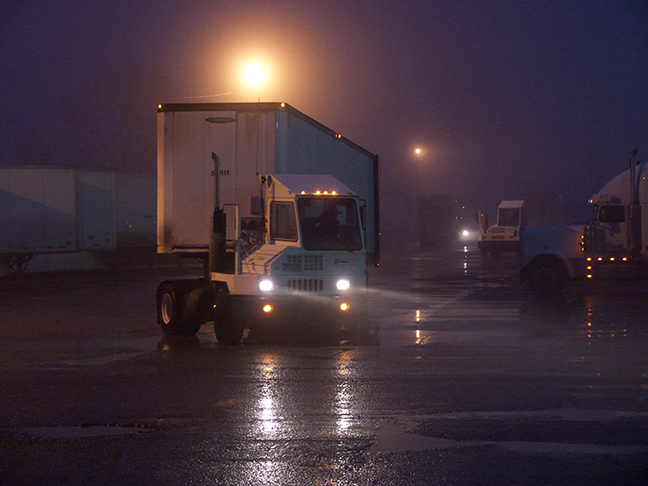
New figures released Friday suggest the U.S. economy is improving. Consumer confidence and spending are up. Factory orders have improved. And, the ranks of the unemployed have thinned as hundreds of thousands of new jobs were added. No doubt, those figures are encouraging, especially since they follow upon similar improvements over several preceding months. Slowly but surely, U.S. economic activity would seem to be reviving. A welcomed hopeful sign for many. Something more to criticize for others. The problem, of course, is that such metrics offer only snapshots of what's happening. Putting several snapshots together can suggest a trend, but it is only a suggestion. What's left out are longterm plans and commitments, just the things that give all the rest of us orientation and confidence to make our own new commitments. Another figure published recently puts total U.S. freight hauled last year at a 6% increase over the amount transported in 2010. Given the thousands and thousands of trucks roaming American highways, that's a huge increase in tonnage. Hard to say what all that stuff was, but somebody ordered it and somebody was willing to pay for it. The easy equivalent of mountains were moved. Nothing imaginary or misconstrueable about it. We might ask, though, will this trend continue? Is it sustainable? And if so, what will be the consequences to our society and to the environment? Those are not easy questions. There are those who believe such growth is definitely not sustainable, given the finite resources of this planet and the inevitable squeeze increasing human populations will place on markets and the environment that sustains us. But then there are others who insist the resources of this planet have barely been tapped. And, given the resources available beyond this planet, the potential for human economic growth is very truly without limits. Which is right? Perhaps both are. Physics and chemistry tell us that as long as we have a source of energy, like the sun, and technology to make use of that energy, the only limits there are to rearranging the molecules of this planet, and indeed molecules of the entire solar system, would seem to be our own ignorance, incompetence, lack of imagination, and inability to agree on how to cooperate with one another. On the other hand, biology, climate, and geophysical science tells us that there are very real limits to the stresses we can safely place on the web of systems that sustain us. Deplete oxygen and we die. Poison the water and we die. Kill off the biosphere and we will have nothing to eat. Undermine the crust of the earth and tsunami will swamp us. Etc, etc. And once again, we run into the wall of our own ignorance, incompetence, lack of imagination, and failure to agree on how to cooperate with one another. Without doubt, our primary source of energy, the sun, will eventually die, as will all the stars of the universe. So, even if we can eventually rise above our own failure to think and act in our own best interest, what then? Will the potential for human economic growth finally end? Maybe. But in the meantime, like kids playing in a sandbox, we could have a hell of a time messing about, moving things around, building them up, and then knocking them down again. Or, on the other hand, it will be extremely satisfying to think of the few selfish bastards that did the rest of us in for their own profit to finally and irrevocably have the lights turned out on them. Don't you think? |
• Posted: Feb 05, 2012 13:37:48
• Comments Welcome
• Vote CoolPhotoblogs
• Purchase a Print
• Share
Thursday, January 26th, 2012 Trenton OH USA |